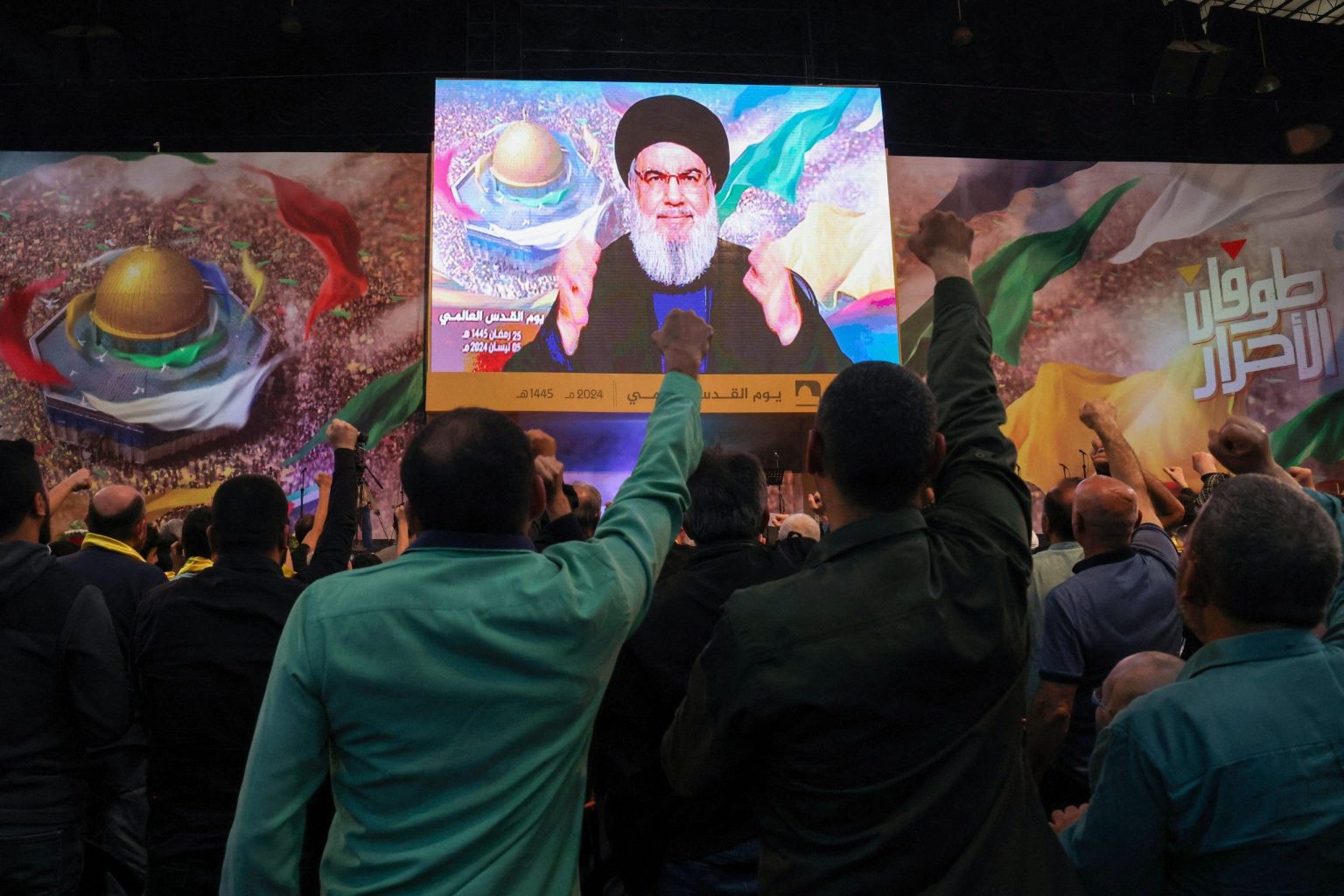Hezbollah’s chief recently declared that Israel would soon face defeat due to pressure from the U.S. to end its campaign, promising an “inevitable” response to the attack on an Iranian consulate. The U.S. administration’s rhetoric and actions are seen as potentially enabling the Axis of Resistance further, with Iranian partners and allies limiting the political distance between them. Hezbollah’s secretary-general focused on how the U.S. has expressed a desire to hold talks with Iran, but Iran has been reluctant. Nasrallah also emphasized Iran’s refusal to compromise on regional issues and touted Iran’s role in the Israeli-Hamas conflict.
Hezbollah’s leader, Hassan Nasrallah, mentioned in a speech that Iran has not compromised and will not in the future on regional issues. He criticized those seeking to normalize ties with Israel and expressed pride in relations with Iran. Nasrallah also boasted about Israeli Prime Minister Benjamin Netanyahu’s alleged failures in dealing with Hamas and the Gaza situation, pointing to Israeli atrocities in Gaza as a sign of failure and lack of options. He highlighted Iran’s sacrifices and contributions in the region and promised an inevitable response to the attack on Iran’s consulate in Damascus.
The relationship between the U.S. and Israel is crucial, particularly in facing threats from extremist groups like Hamas and Hezbollah. Analysts warn that President Biden’s warnings to Israeli Prime Minister Netanyahu may be interpreted by enemies as a sign of potential U.S. abandonment of Israel. Reports suggest Biden’s personal unhappiness with Israel’s approach, with his rhetoric shifting over the past few months, possibly in response to pressure from the progressive wing of the Democratic Party. This has raised concerns about potential vulnerabilities of the U.S. in the face of attacks from groups targeting Israel and the West.
The recent airstrike in Syria, which reportedly killed seven aid workers from the World Central Kitchen, has raised questions about Israel’s actions and potential responses. While Israel has not commented on the strike, a retired IDF brigadier-general referred to it as an “alleged Israel strike.” The Pentagon emphasized that Israel should speak about the strike, indicating a level of uncertainty and complexity surrounding the incident. President Biden and first lady Jill Biden have reportedly expressed their concerns about the ongoing conflict in Gaza, with calls to end the war. Biden’s approach to the conflict, and his relationship with Israel, has faced scrutiny and criticism from various quarters.
Hezbollah’s chief highlighted Iran’s role in the Israeli-Hamas conflict and vowed a strong response to the attack on Iran’s consulate in Damascus. The relationship between the U.S. and Israel, particularly in facing threats from extremist groups, is considered essential. Concerns have been raised about potential risks of U.S. abandonment of Israel amid shifting rhetoric from President Biden and increasing pressure from within his party. The recent airstrike in Syria and its aftermath have added to the complexities of the situation, with uncertainty surrounding Israel’s actions and potential consequences. The broader implications of these developments on regional dynamics and international relations remain to be seen.


